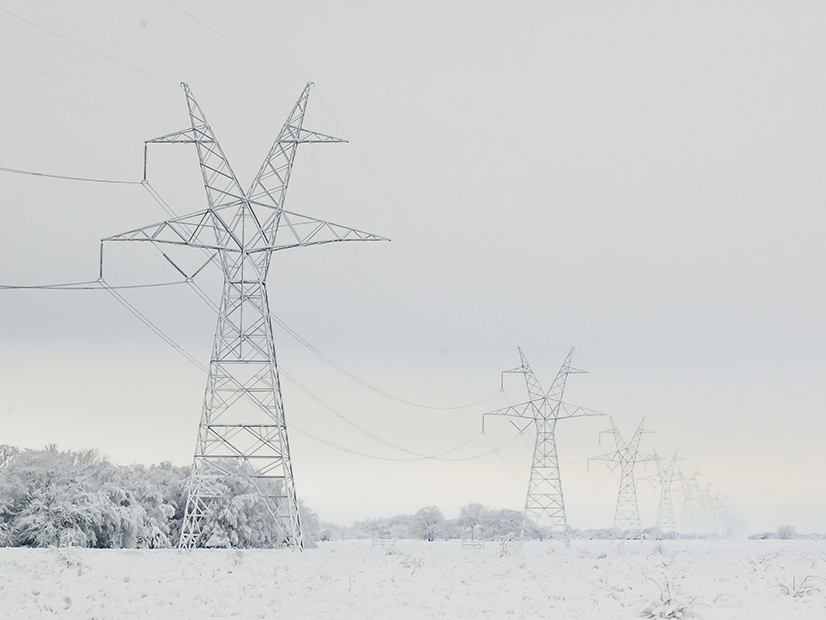
A proposed reliability standard that would affect registered entities’ preparations for extreme hot or cold weather events was rejected by industry stakeholders for a second time last week, with some commenters criticizing the team behind the standard for failing to address their objections to the previous version.
The latest formal comment period for TPL-008-1 (Transmission system planning performance requirements for extreme temperature events) began July 16 and ended Aug. 22, slightly shorter than the standard 45 days. NERC’s Standards Committee authorized shortening the comment period at its meeting in March. (See NERC Standards Teams Pushing to Meet FERC Deadlines.) Stakeholders submitted votes over the last 10 days of the comment period.
A total of 314 industry stakeholders were part of the formal ballot pool, with 276 casting votes according to the industry segment they represent. Of these, 40 voted to approve the standard, while 200 voted against. One of the negative voters did not submit a comment, so it was not counted with the negative votes, while 36 stakeholders abstained.
After the results were weighted to account for segment participation, the standard received a vote of 18.17% in favor. A two-thirds majority is needed for approval. The final result represents a decline from the standard’s last ballot round that closed on May 3, when 37 voted for it and 216 against, for a weighted segment value of 18.69%.
Project 2023-07 developed TPL-008-1 in response to FERC’s Order 896, which directed NERC to submit a standard by December 2024 addressing performance concerns of transmission equipment in cold weather. The standard would require responsible entities to perform extreme temperature assessments based on benchmarks selected by them from a library maintained by the ERO for both extreme heat and extreme cold.
Entities also would be required to work with planning coordinators to develop a process for creating benchmark planning cases that include “seasonal and temperature dependent adjustments for load, generation, transmission and transfers to represent the selected benchmark temperature events.” In addition, responsible entities would have to develop corrective action plans when a benchmark planning case indicates their part of the grid cannot meet performance requirements for certain contingencies.
Criticisms of the standard in the first ballot included a lack of insight into the library of benchmarks to be used by entities when developing their extreme temperature assessments, and respondents in the second round asserted this still was not addressed. In a comment endorsed by several other stakeholders, Mark Gray of the Edison Electric Institute said the benchmark library “is being developed without industry review and approval, and as of this draft we continue to only have superficial insights into this library.”
In addition, Gray said, the latest draft “still does not contain any specific boundary limits that could guide responsible entities in their extreme weather assessments or otherwise limit what might be contained or added to the extreme weather event library, now or in the future.” Gray suggested adding language identifying data that entities could use — such as meteorological data for the past 20 years, or extreme temperature conditions with a specified probability within an entity’s area — while “intentionally [leaving] the specific boundaries to be set by the” drafting team.
Respondents also expressed dissatisfaction with the team’s changes to requirements R3 and R4, which outline how PCs are to coordinate with entities on the development of benchmark planning cases. John Brewer, writing on behalf of the National Energy Technology Laboratory, said the standard is unclear about who will decide which entities can participate in benchmark planning studies, and how conflicts will be resolved if PCs select different benchmark temperature events.
Jennifer Weber, writing for the Tennessee Valley Authority, recommended that designated study entities “be identified as part of the PC developed coordination process” in order to reduce confusion over how they are to be chosen. In addition, she argued that a section of R4 that “requires an increasingly more extreme scenario for purposes of a sensitivity analysis” is not credible, especially when applied to longer-term planning horizons when information about generation additions and retirements is not known.
The next comment and ballot period for TPL-008-1 has not been determined yet. However, the standard drafting team for Project 2023-07 is scheduled to meet Aug. 29 to consider the comments received in this round.



